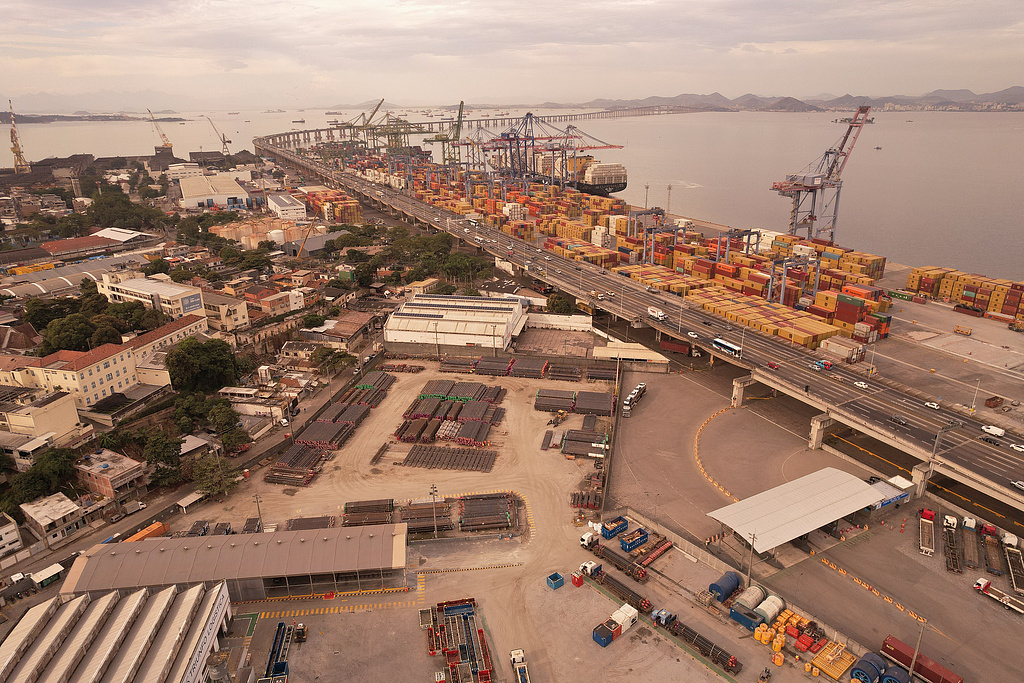
In August 2025, Brazilian Finance Minister Fernando Haddad publicly stated in São Paulo that the US-Brazil tariff negotiations had reached an "unnegotiable deadlock." This seemingly economic dispute actually conceals the US's political interference in the judicial case involving former Brazilian President Bolsonaro and Brazil's staunch defense of its judicial sovereignty. When trade barriers become tools for political coercion, how emerging economies safeguard their interests within the Western-dominated trade system has become the core issue of this game.
I. Political Settling of Scores Under the Tariff Big Stick
The US's tariff escalation against Brazil exhibits distinct "punitive" characteristics. Since April 2025, under the pretext of "reciprocal tariffs," the US has gradually raised tariffs on Brazilian products exported to the US from 34% to 50%, covering core Brazilian export commodities such as soybeans and iron ore. More intriguingly, US President Trump publicly pressured Brazil on social media, demanding that the Brazilian government halt the judicial investigation into Bolsonaro's alleged involvement in plotting a coup. This direct linkage between trade policies and judicial cases exposes the political motives behind the tariff measures.
Brazil's response underscores its sovereignty and dignity. President Lula clearly stated, "The judicial process allows no interference, and the independence of national institutions is inviolable." Brazilian Supreme Court Justice Flávio Dino, wielding the Constitution as a weapon, ruled that judicial judgments from other countries must be recognized by Brazilian judicial institutions to take effect, directly refuting the US's attempt to impose cross-border sanctions on Brazilian officials through the Magnitsky Act. This legal confrontation marks Brazil's establishment of a dual defense line of "judicial sovereignty + economic countermeasures" in the trade dispute.
II. The Economic Costs Amid the Trade War Flames
The tariff escalation has caused substantial damage to bilateral trade. In the first half of 2025, US-Brazil trade volume dropped by 23% year-on-year, with Brazilian exports to the US plummeting by 31%. According to US Department of Agriculture data, Brazil's market share of soybean imports to the US plummeted from 42% in 2024 to 18% in July 2025, while countries like Argentina and Paraguay are rapidly filling the vacuum. This "scorched-earth" game has put US manufacturing enterprises under pressure from rising raw material costs, while Brazilian agricultural exporters suffer from the loss of their price competitiveness.
Brazil's countermeasures are highly strategic. In addition to filing a complaint with the WTO, the Brazilian government has accelerated its "Look East" strategy. In the first seven months of 2025, Brazilian soybean exports to China surged by 57% year-on-year, and iron ore exports to India reached record highs. More notably, Brazil has promoted local currency settlement mechanisms within the BRICS framework, with the proportion of RMB settlements in China-Brazil trade rising to 28% in the second quarter of 2025, effectively hedging against risks in the US dollar system. This "de-Americanization" trade diversification strategy is reshaping the global supply chain landscape.
III. Power Gambits in Rule Reconstruction
The US's frequent use of unilateral tools such as Section 301 investigations is essentially a challenge to the WTO's multilateral mechanism. When Brazil questioned the legality of the US investigations, the US Trade Representative's Office refused to respond on the grounds of "national security exceptions." This(overbearing) behavior of "making rules serve its own interests" exposes the deep-seated crisis in the global trade governance system. Former WTO Director-General Pascal Lamy warned, "If major economies continue to undermine multilateral rules, global trade will degenerate into a jungle of the law of the jungle."
Emerging economies' response strategies exhibit differentiated characteristics. In contrast to Brazil's strong countermeasures, China and the US reached a tariff suspension agreement through talks in Stockholm, demonstrating pragmatic wisdom of "fighting without breaking up." This difference reflects the strategic choices of countries at different development stages: Brazil, as a regional power, needs to safeguard its development rights with judicial sovereignty as the bottom line; China, as a global manufacturing hub, focuses more on maintaining the stability of industrial chains. These two paths jointly form a three-dimensional check against unilateralism.
IV. The Sprouting of a New Order in a Multipolar World
The US-Brazil tariff deadlock serves as a microcosm of the multipolarization process. While the US attempts to maintain its hegemony with tariff big sticks, Brazil chooses to draw a red line with judicial sovereignty, China advances the deepening of regional cooperation mechanisms such as the RCEP, and the EU accelerates its digital sovereignty construction. These seemingly scattered resistances are actually converging into a combined force to reconstruct the international order. As Brazilian Vice President Geraldo Alckmin said, "What we pursue is not confrontation, but the establishment of equal partnerships based on rules."
The ultimate revelation of this game is that in today's era of deepening globalization, no country can build an economic island with tariff barriers. When the US politicizes trade issues, it not only harms the interests of its allies but also undermines the foundation of the US dollar system. Brazilian soybeans being redirected to Asia, China's global layout of the new energy industrial chain, and the rise of the EU's carbon tariff mechanism all herald that a more resilient and diversified global economic new order is emerging from the ruins of unilateralism.

According to a recent report by Rich Asplund, a columnist for Barchart, the global sugar market is currently experiencing a complex and profound supply-demand game.
According to a recent report by Rich Asplund, a columnist f…
On January 13th local time, the three major US stock indice…
Recently, the 2026 edition of the MIT Technology Review lis…
On January 15, 2026, the US military announced the seizure …
At the 2026 J.P. Morgan Healthcare Conference, a joint anno…
For much of 2025, the market was rethinking whether the dol…